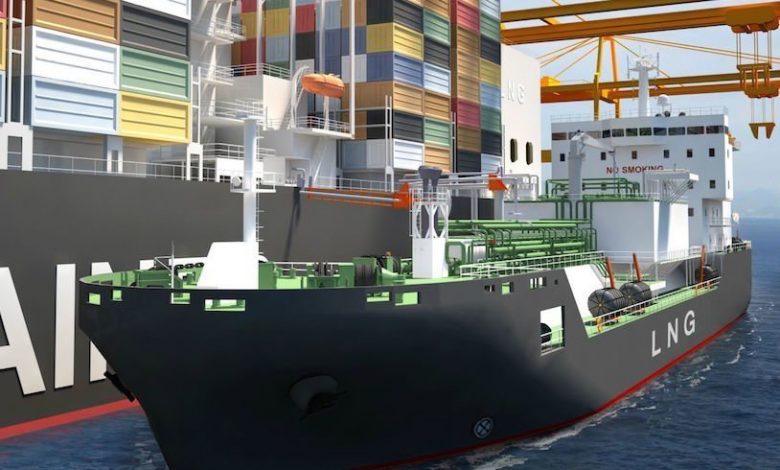DNV GL advises EU on what’s needed for wider adoption of LNG as a marine fuel

Class society DNV GL has provided a report for the EU providing recommendations on how to address barriers to wider adoption of LNG as a marine fuel. By November 2016 all member states have to submit national policy frameworks for the implementation of the EU alternative fuels directive; the report’s recommendations are a “useful aid” in this, the class society claimed in a release today.
Two key barriers to take-up of LNG as ship fuel are the gaps in the legislative or regulatory framework, and the lack of harmonised standards. DNV GL has undertaken an analysis and evaluation identifying the remaining gaps for completing an EU-wide framework for marine LNG distribution, bunkering and use. The report is part of the study on the completion of an EU framework on LNG-fuelled ships and its relevant fuel provision infrastructure commissioned by the European Commission.
DNV GL’s report builds on a study commissioned by EMSA. It provides an overview of currently applicable standards, rules and regulations governing the maritime LNG supply chain, a gap analysis identifying the gaps in the current regulatory framework in order to make LNG bunkering and LNG fuelled vessels feasible in the EU, a set of recommendations addressing the gaps identified, and an impact assessment of the prioritized recommendations and actions.
“DNV GL’s assessment of the existing rules, standards and guidelines shows that from a legal point of view, there are no remaining major showstoppers for the use of LNG as fuel – both for seagoing vessels and inland waterway vessels – nor for the deployment of LNG bunker facilities,” said Martin Layfield, global segment leader of the gas value chain, DNV GL – Oil & Gas.
DNV GL has advised the EU to implement a “low/ moderate harmonization scenario” as the most workable policy option which will enable members states to transpose the directive on alternative fuels with a light touch.
“The next three decades will see substantial increase in energy demand. At the same time, a big part of the world expects the energy to be greener, more reliable and more affordable. This is what we refer to as the energy ‘trilemma’. Natural gas has a key role to play in the future energy mix and Europe will continue to be a significant import hub for LNG,” said Liv Hovem, regional manager for DNV GL – Oil & Gas.
